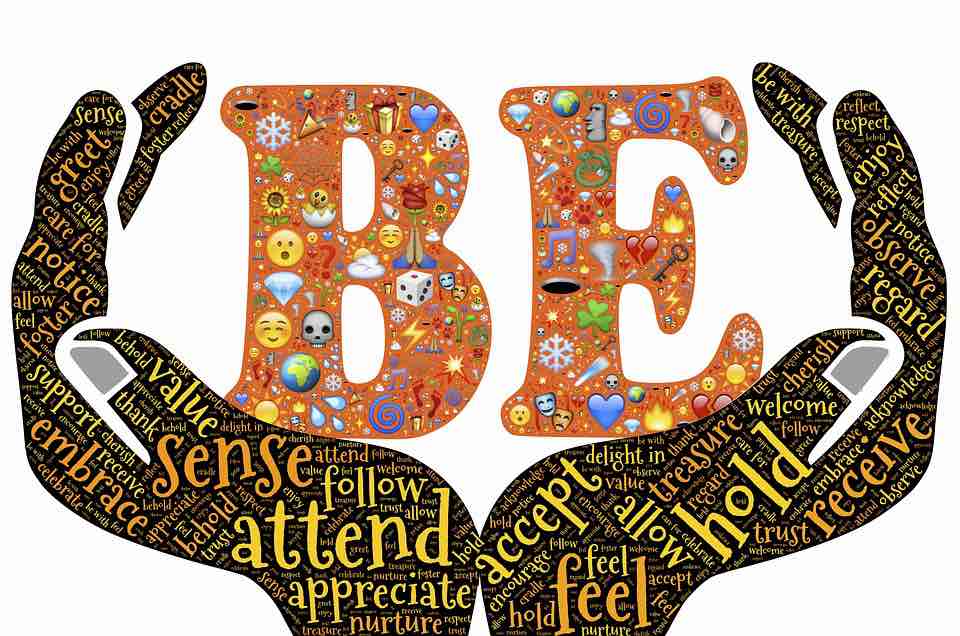Last week, I attended a talk by a palliative care physician. She spoke about the incredible ways in which people reflect and grow when they are faced with their own mortality. When the physician asked her patients about their regrets, there was one sentiment that was by far the most prevalent response.
Any guesses?
The majority of people said they wished they had the courage to live a life true to themselves, not the life others expected of them.
From a very young age, society sends us strong messages about how we should behave, what we should believe, and the path we should follow. Eventually, we begin to internalize these “shoulds,” judging ourselves and others when a situation doesn’t align with our expectations.
Think about the last time you felt sad. What were the thoughts that went through your mind? “I should have done better.” “I should have started a long time ago.” “I should look thinner/prettier/smarter.”
Now think about the last time you felt angry. What kind of thoughts did you have then? “He should not treat me like this.” “She should stop making the same mistake over and over again.” “They should not be so loud and inconsiderate.”
In sadness, we judge ourselves. In anger, we judge others. And both of these experiences begin with the most dangerous word: “should.”
We use “should” to express our certainty that things are not ok in this moment, that they ought to be different, and that the best course of action is to resist what’s happening. “Should” brings us to a place of judgment, and away from our loving selves.
I’m not implying that we should not practice wise discernment. On the contrary, it is important to be aware of the actions and environments that help us to live as the best versions of ourselves, and also those that don’t work for us. But when we make these judgments based on socially induced ’shoulds,’ instead of our true values (i.e, those values we live by when we are faced with our mortality), it leads to great unhappiness and regret.
Moreover, when we decide that something should be different than what it is right now, we often start to fight with it, or try to fix it, rather than simply letting ourselves experience the vulnerability that’s there.
This happens even when we are in touch with our true values. For example, if I’m meditating and can’t quiet my mind, I’ll probably go into an inner dialogue of self-judgement. “You have been meditating for 7 years, Caitlin, you should be able to quiet your mind by now. What’s wrong with you? Get those thoughts to shut up, so you can meditate like you know you should.”
At the end of the sitting, not only have I not meditated, but I’ve also become extremely caught up in my sadness about not being a good meditator.
What if, when I recognize my loud mind, I simply sit with that vulnerability, and say, “Ok. It’s like this right now. Is there anything I can do to love myself as I experience this?”
Now it’s your turn.
Close your eyes, take a deep breath and think about somewhere in your life where you are hooked on sending blame, either towards another person or yourself. Where you have a story that something is wrong. That something should be different. Take 2 minutes to really bring this situation into mind.
Now, if you had to let go of this narrative, to completely drop out of this story line, what would you have to experience underneath it? What would you have to deal with? What’s the feeling tone in your body? Again, with your eyes closed, take 2 minutes to see what comes up for you.
Was it sadness, like I experienced? Or perhaps fear? Shame? Guilt? Control? Disappointment? Can you sit with those feelings of vulnerability, and show them love, rather than run back to blame?
The fact is, we cannot transform from a place of judgment. If I say, “I hate myself for being so anxious around other people, I really can’t believe I’m such a wreck,” there’s no way I can move towards greater confidence. Similarly, if I approach my partner and say, “I hate that you’re so inconsiderate, you need to be more thoughtful,” he will probably write me off or get defensive.
We really evolve and grow when we feel loved and supported. When we are not living in reaction to our judgemental shoulds, but rather, in response to our compassionate what-ifs. So instead of facing regret, as so many people do when confronted with their mortality, why not start living as your true self, with more love and less “shoulds.”

If my child is attracted to the handle on that boiling pot, I think I’m going to say NO. The NO word associates with us doing something dangerous or wrong and we are in trouble, which releases the stress hormones.